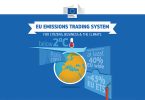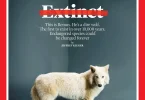 2007. Január 30. Europolitics
2007. Január 30. Europolitics
A történelmi távközlési hálózatüzemeltetők ki akarják venni a részüket a klímaváltozással szembeni csatában. Az európai egyesület, az ETNO, ideális partnerre talált a WWF személyében, akivel szövetségre lépett, hogy „népszerűsítse az információs és kommunikációs technológiákat (ICT) a környezetvédelem terén”. A két csapat január 29-én mutatta be a közös roadmap-jüket, ami kiemeli, hogy 2010-ig az EU CO2 kibocsátása évente 50 millió tonnával csökkenthető. Egy újabb állomás a még ambiciózusabb 2020-ra kitűzendő célokra is.
A dokumentum szerint, ha Németországban az üzleti utazások 20%-át kiváltanák videó-konferenciával, akkor ezzel 5,2 millió tonnával lehetne csökkenteni a CO2 kibocsátást. Vagy, ha 100 millió európai távmunkában dolgozna, az EU 2,87 millió tonna CO2-ot tudna megtakarítani (hetente (a szerk.)) Az ETNO és a WWF szintén magasztalja az audio-konferenciát, az online számlázás, a hangposta szolgáltatást és az online adózást. Ha 100 millió adóbevallás az interneten keresztül kerül kitöltésre, akkor ezzel 101.400 tonna CO2 kibocsátás volna elkerülhető, ismerteti a két partner.
Bíznak benne, hogy fel tudják kelteni a kulcsszereplők figyelmét: európai politikusok, a bankok és befektetők. „Ez valóság, nem teória. Ezek a projektek már mind működnek” – jegyzi meg a WWF-es Dennis Pamlin, kihangsúlyozva szélessáv szerepét és a jelen energia vitából származó nyomást.
A pilot projektekből levezetve ezek a számok „a meglévő lehetőségek áttekintése” az ICT használatára, ami egyszerre stimulálja a növekedést és segít a klímaváltozás ellen fellépni – mondja Pamlin.
Az eredeti cikk:
TELECOMMUNICATIONS/ENVIRONMENT : ETNO, WWF TEAM UP TO BATTLE CLIMATE CHANGE
30 January 2007
Europolitics
The historic telecommunications network operators want to have their say in the climate change debate. Their European association, ETNO, has found an ideal partner in the World Wide Fund for Nature (WWF), with which it has teamed up „to promote the positive impact of the information and communication technologies [ICT] on the environment”. The two groups presented, on 29 January, a joint ‘road map’ meant to point the way to reducing by 50 million tonnes a year the EU’s CO2 emissions by 2010 (1). A subsequent stage would be to set more ambitious targets for 2020.
According to the document, if 20% of business travel in Germany were replaced by videoconferences, CO2 emissions could be cut by 5.2 million tonnes. Or if 100 million Europeans opted for teleworking, the EU could save 2.87 million tonnes of CO2. ETNO and WWF also extol the advantages of audio-conferences, online payment of phone bills, virtual answering machines and online tax returns. If 100 million tax declarations were filed via the internet, CO2 emissions would decline by 101,400 tonnes, explain the two partners.
They hope to create awareness among the key players: the European policy-makers, the banks and the investors. „This is reality, not theory. These projects are already being implemented,” notes Dennis Pamlin of WWF, stressing the role of broadband and pressure arising from today’s debate on energy.
Drawn from pilot projects, these figures give „an overview of all existing opportunities” using ICT, both to stimulate growth and to tackle climate change, Pamlin argues.






